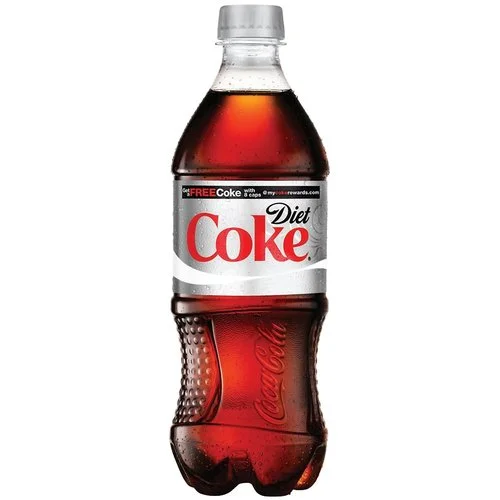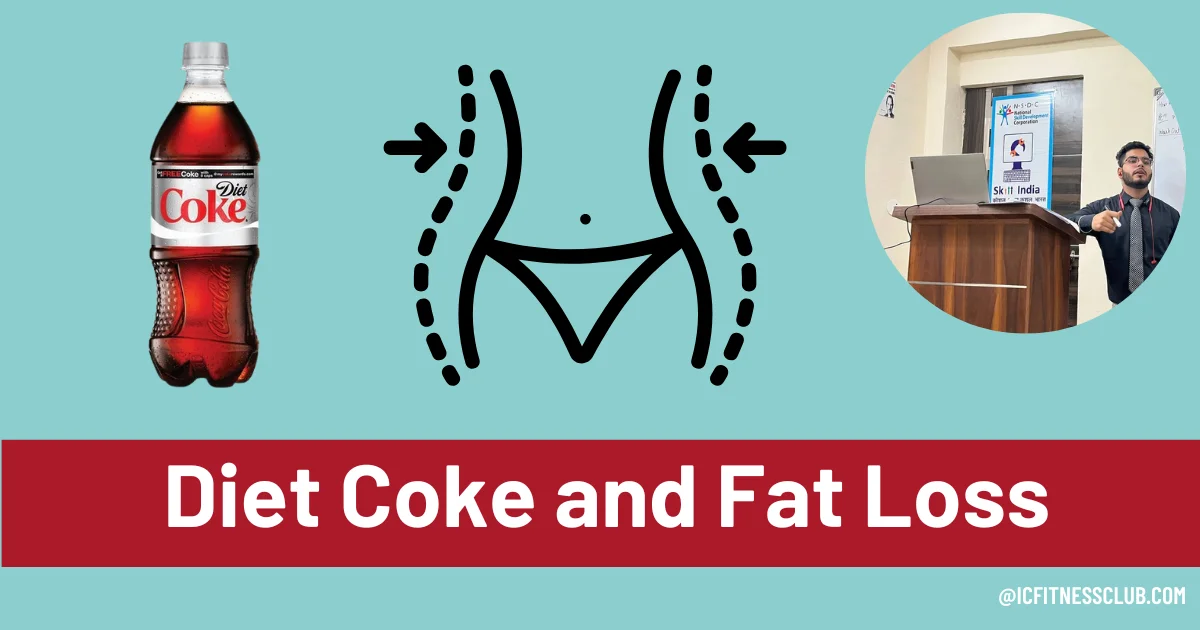Diet Coke For Fat Loss – IC Fitness Club
Diet Coke is a popular sugar-free soft drink that was first introduced by The Coca-Cola Company in 1982. It is sweetened with artificial sweeteners such as aspartame, acesulfame potassium, and/or sucralose, rather than sugar. It is marketed as a low-calorie alternative to regular cola and other soft drinks, with zero calories per serving.
Aspartame is an artificial sweetener that is commonly used as a sugar substitute in many low-calorie and sugar-free products, including soft drinks, chewing gum, desserts, and other foods. It is a combination of two amino acids, phenylalanine and aspartic acid. Aspartame is about 200 times sweeter than sugar but contains only a fraction of the calories.

Our Body’s Response to the sweeteners
When we consume sweet foods or drinks, our bodies release insulin, a hormone that helps to regulate our blood sugar levels. Insulin signals our cells to absorb glucose from the bloodstream, which provides energy for our bodies. The more sugar we consume, the more insulin our bodies need to produce in order to keep our blood sugar levels in check.
Some research suggests that consuming too many artificial sweeteners may actually increase our cravings for sweet foods, leading to overeating and potential weight gain.
Sweetness and Leptin Relation
Leptin is a hormone produced by fat cells in our bodies that helps to regulate appetite and body weight. When we consume food, leptin levels rise, signaling to our brain that we are full and should stop eating. However, some research suggests that consuming large amounts of sweet foods or drinks may interfere with this process.
Artificial sweeteners like aspartame have no calories, so they do not contribute to weight gain. However, studies have shown that consuming artificial sweeteners may interfere with the body’s ability to regulate appetite and body weight. Some research suggests that consuming large amounts of artificial sweeteners may actually increase cravings for sweet foods, leading to overeating and potential weight gain.
Moreover, some studies have suggested that artificial sweeteners may interfere with the body’s production of leptin. Leptin resistance, where the body becomes less responsive to the hormone, has been associated with obesity and other health problems. While the research in this area is still ongoing, it is clear that consuming large amounts of sweet foods or drinks, whether they contain sugar or artificial sweeteners, can have a negative impact on our health and weight.
Conclusion
Artificial sweeteners may not have calories and may not cause weight gain, however, they may create cravings in the body by inhibiting the leptin response which will push to overeat and gain weight.




